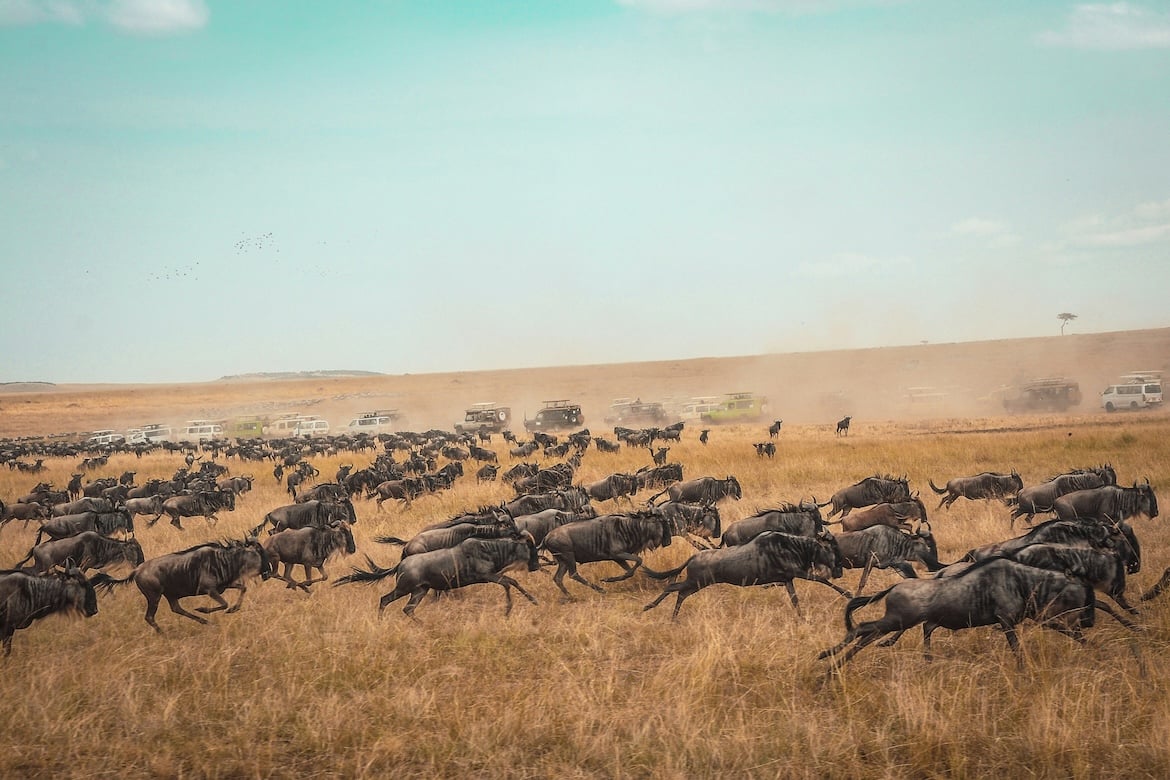This week’s list of top data news highlights covers September 13, 2025 to September 19, 2025 and includes articles on streamlining disaster relief and explaining wildebeest migration patterns.
Albania has appointed an AI bot named Diella as a virtual cabinet minister, tasking it with overseeing public procurement in a bid to curb corruption by reducing human discretion and bias in tender decisions. Diella started out as a virtual assistant on the e-Albania government platform, helping users access digital services, and has now been elevated to to score and review tenders against fixed data and rules.
2. Streamlining Airport Security
Dubai International Airport has introduced AI-powered “corridors” that allow travelers to pass through immigration without showing passports or boarding passes. The system uses facial and iris recognition to identify passengers as they walk, streamlining the arrival and departure process. Officials say the technology is designed to handle growing passenger traffic while improving security and reducing wait times.
The UAE’s Mohamed bin Zayed University of AI and AI group G42 have released K2 Think, an open-source reasoning model that matches the performance of models over 20 times its size. K2 Think uses various techniques to enhance reasoning performance without adding parameters, such as chain-of-thought training, reinforcement learning, and speculative decoding. The project highlights a shift toward smaller, efficient models that can match massive systems from leading companies.
4. Providing Farming Knowledge
Opportunity International, a nonprofit based in Malawi, has launched Ulangizi, a WhatsApp-based AI chatbot that provides farming advice in Chichewa and English. The tool helps smallholder farmers identify crop diseases, predict yields, and adapt to extreme weather by offering text-based guidance, or audio for those with limited literacy. Because many farmers don’t own smartphones, human field agents bring devices into villages and help groups of farmers use the app. But scaling remains difficult, since Internet connections are often unreliable and trust in AI advice is still fragile.
5. Predicting Satellite Disruptions
NASA has developed AI models that predict solar storms and other space weather events up to 24 hours before they disrupt satellites. By analyzing data from the Sun, Earth’s magnetic field, and the ionosphere, the models warn of GPS outages, Internet disruptions, and potential satellite collisions. The model also explains the solar activity behind auroras seen on Earth, synthesizing collected data into usable summaries.
6. Counting Migrating Wildebeest
Researchers from Oxford University have used AI and satellite imagery to count wildebeest in East Africa’s famed Great Migration, finding fewer than 600,000 animals—less than half the long-standing estimate of 1.3 million. Deep-learning models were trained on tens of thousands of labeled examples of wildebeest and then used to scan high-resolution satellite images from 2022 and 2023, identifying each animal as a tiny six- to twelve-pixel shape. Unlike past aerial surveys, which flew sample routes and extrapolated totals, this method directly counted individuals across the entire area, producing far more reliable numbers.
Researchers at the University of Florida are using AI-powered traps to capture Argentine black and white tegus, an invasive lizard species threatening native wildlife. The smart traps, developed by Wild Vision Systems, a technology company based in England, use cameras and image recognition to identify tegus and notify wildlife managers via phone when one is caught. In field tests, the technology reduced accidental captures by over 90 percent and labor costs by over 80 percent. Scientists aim to expand the system to control other invasive species like iguanas and Nile monitors, helping protect fragile ecosystems like the Everglades.
RapidRelief, a startup based in Florida, uses AI to connect insurance providers and government agencies directly with disaster victims through a centralized platform. The system gathers and analyzes real-time data from affected areas, automatically matching individuals’ needs with available resources like emergency funds, supplies, and recovery services. By replacing slow, manual paperwork with AI-driven coordination, RapidRelief speeds up relief efforts and helps communities prepare for and respond to natural disasters more effectively.
9. Improving Team Communication in Cycling
Draco Intelligence, a U.S.-based startup, is developing Dragon, a pair of augmented reality glasses, along with Modo, a tactical communication system for cycling teams. The glasses display real-time data such as rider position, distance, and performance metrics, integrating with platforms like Garmin Connect and Strava. Team directors use Modo to track cyclists during races and send instructions that appear directly on riders’ displays, replacing traditional earpiece radios.
10. Automating Military Aircraft Production
Machina Labs, a California-based robotics company, is working with the U.S. Air Force to better produce metal components for military aircraft. The system automates forming and cutting of critical airframe parts, speeding up maintenance and improving mission readiness. With dual robotic arms and advanced process controls, RoboCraftsman can shape and inspect large, complex components from materials like steel and titanium on-site in less than a day.

